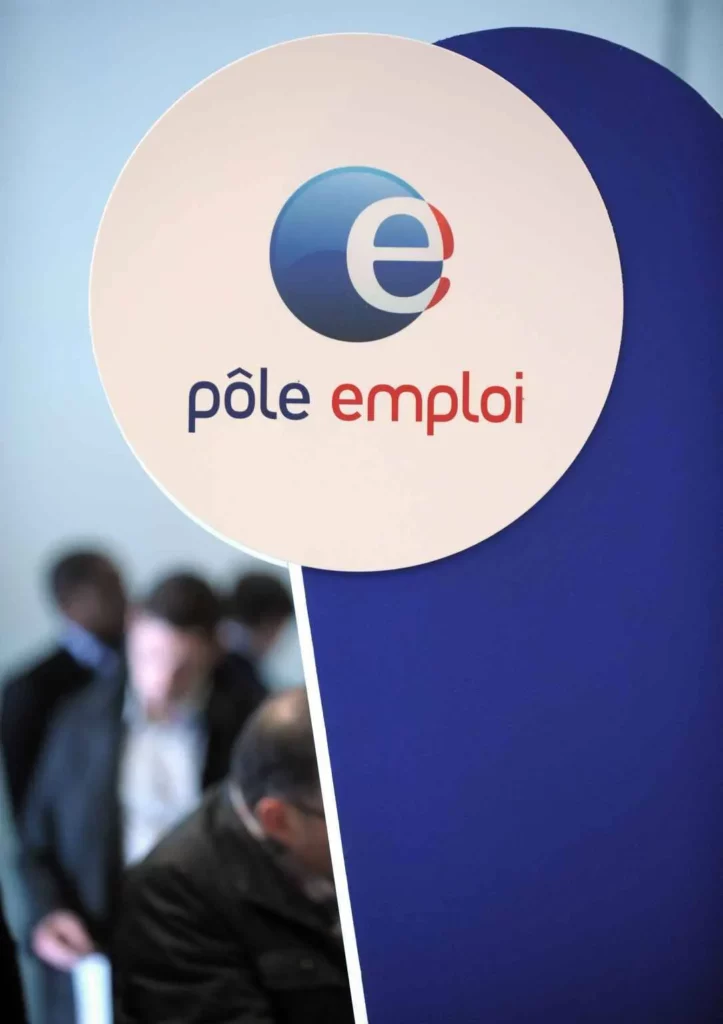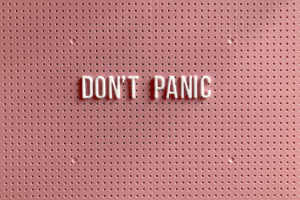Us, French people may have a reputation in this world, but none of us really like to sit on our asses all day long doing nothing. Don’t get me wrong, doing so for a couple of days or weeks is nice, but it’s called a holiday and it’s only temporary. Unemployment is a bit different.
Unemployment is not a holiday and the French people know this, that’s why the welfare system to help people out of unemployment is quite generous and inclusive.
In this article we will discover what is the Pôle Emploi, what is the criteria to get benefits and how does it work?
What is Pôle Emploi ?
The Pôle Emploi is the French unemployment agency. It is populated by agents meant to help you find a job and get benefits.
In France, the system relies on contributions from everyone. So, when you work, you pay taxes called social charges that are going to be used to finance the social system, whether you get this money back or not. Thus, you need to contribute before you get any.
The Pôle Emploi, among other benefits, allocates what is called the ARE (Allocation de retour à l’Emploi – back to work benefit). If you are looking for a job, you’ll spend a lot of time with them, replying to emails or actually going to their offices.

How to register for unemployment ?
What are the documents I need to submit?
Before even thinking about your registration, remember that you’re in France and like any other request you have with the administration, you’ll be expected to provide some documents, which usually are :
- Your former working contract (because you usually cannot get unemployment benefits if you never worked)
- Attestation Pôle Emploi (if relevant) – it is issued to you by your employer
- A proof of ID
- A copy of your carte vitale
- A CV
- Your bank details
- A proof of address (utility or phone bill)
Can I register without having all the documents ?
Yes, you can. However, Pôle Emploi will ask you to provide them at some point, later during the registration process.
Can I register to unemployment benefits if I’m not French ?
The criteria to allocate the allowance doesn’t take your nationality into account. What is important is that you have worked in France for a couple of months (see below the criteria for more details).
The only difference if you’re a foreign resident is that you’ll be asked to provide a copy of your titre de séjour. Bear in mind that most of the “titres de séjour” make you eligible for the benefits, but not all of them. You’ll find some more info here.
This doesn’t apply if you’re from an EU/EEA country, a proof of ID is enough and you shall have no stress to be eligible or not based on your nationality. If you are arriving in France and haven’t worked there before applying for unemployment, make sure you have the tax document that you have finished your work and left the country officially.
How do I create an account ?
Step 2 : getting there
Scroll down to the “Je commence” Button
Step 3 : filling the pre-registration form
Yep, in France, you fill a form to make sure you’re eligible to fill the registration form.
The whole thing is in French and seeks to know a bit more about the reason you register (Q.1) and if you have registered in the past (Q.3).
Step 4 : filling the actual form
This is always the funniest when dealing with the French administration, so let’s crack our fingers and get on with it. You’ll then get a couple questions to fill. They are the same as any other admin form.
1. Your contact details, name and address and the motive for your registration (yep, it should be the same than in Q1)
2. You’ll be asked about your situation (when you left your job, what was your status etc.). The French administrative logic also dictates that you’ll provide your bank details here (and not when you filled your contact infos just above…)
3. You’ll be asked about your previous work experiences and diplomas, so get your CV in order, your qualifications, driving licence etc.
4. You’ll finally be required to book a time for a first meeting with an advisor (see below). It’s not clear if they have an English speaking option.
What happens during the first meeting ?
As strange as it seems, the French government doesn’t want to give you money if you’re gonna be lazy. That’s why this first meeting takes place. It’ll help the advisor get to know you and your project. The idea is to draft what is called a “projet personnalisé d’accès à l’emploi” (PPAE) / personalized project to get a job.
This meeting will determine if you get the benefit or not, and in order to convince the advisor, here are a couple of tips :
- Come prepared with a solid and bulletproof project (at least a plan). It’s always good to come with a plan B and C. So that the advisor sees that you’re motivated.
- Show that you can handle your job search on your own. This will take the advisor off your back and you won’t get meetings every other week to check your progress. Usually, the advisor likes to see independent people that can handle themselves.
How does unemployment benefits work ?
What are the criteria to receive unemployment benefits ?
There are 5 main criteria you need to think of, which I will present to you as questions. If you answered yes to all of them, you’re on a good track:
- Did you leave your previous job involuntarily or through the mutually agreed termination procedure ?
- Did you work in France for at least 6 months in the last 2 years ?
- Did you register to Pôle Emploi within 12 months after leaving your last job ?
- Are you actively looking for a job ?
- Are you available for work right away ?
Regarding your status as a foreigner, I refer you to the paragraphs above.
How do I receive compensation ?
Every month, you’ll receive an email requiring you to update your status on the Pôle Emploi website.
It’s a list of questions to assess if you’re still looking for a job that you have to fill every month !
You usually answer no to every question but beware, the last question must be a yes !
How is the unemployment compensation calculated ?
Let’s get to the numbers, now. Pôle Emploi provides you with a monthly allowance. This benefit equals 57% of your gross salary. It is also capped at 4 or 5k/month. Of course, the calculation is more complicated than that but that’s a rough estimate.
Can the payments stop ?
There are a couple of cases when then payments can stop :
- If you you refuse two job offers made through Pôle Emploi (not the ones that you look for yourself)
- If you don’t provide the required documents in due time
- If you refuse a training course required by Pôle Emploi
- If you miss the monthly registration
- When you find another job
Bear also in mind that if your allowance is above 85,18€ a day, then after 9 months, your benefit will be cut by 30%
How long do I receive unemployment benefits for?
As you worked for a minimum of 6 months to become eligible, you’ll be compensated for at least 6 months.
Then, basically, you remain eligible for as long as you contributed during your previous jobs. this means that if you’ve worked for 1 year, you’ll get benefits for 1 year. Once again, the calculation is trickier than that. I’m just giving you the big picture here.
To date, the maximum period to get unemployment benefits is 2 years.
Can I get unemployment benefits and a salary at the same time ?
Programs are being set up to cumulate benefits and work revenues. Of course, you won’t get the full amount of your benefit but as your salary grows, the benefit will decrease.
What happens if I don’t get any benefits ?
Then, it means that you were not eligible for unemployment benefits. However, it does not mean that you cannot register with the Pôle Emploi.
Indeed, the registration can grant you access to trainings and courses that could be relevant in your project.
Also, other benefits may be available to you, noticeably the ASS (Allocation supplémentaire de solidarité) – yep, a funny name! Please get in touch with your Pôle Emploi advisor to know more about it.
Tips :
- The form is in French. If you need any help please send us a message
- Don’t forget to update your status every month to receive the benefits
- Most of the training offered by Pôle Emploi are in French – a good way to develop your skills in French !


